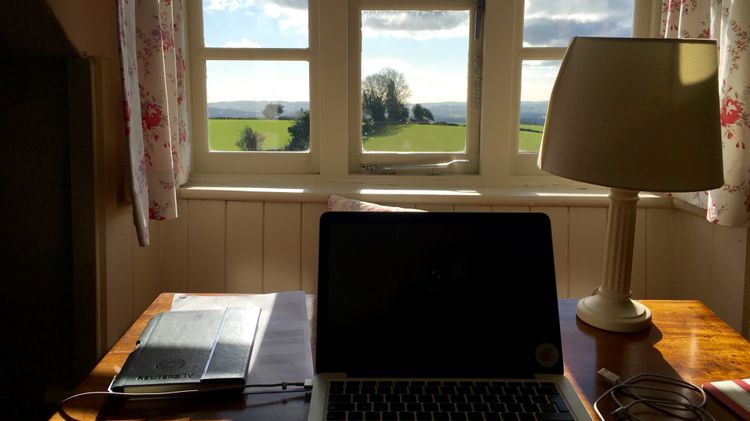Why we need freedom of place

For a few decades now, competing trends have built a tension in our society that was unsustainable.
What was seen as normality was stretched out year after year by ropes pulling in different directions — meaning it was only a matter of time before the tension became too much, and normality was torn up.
The multitude of ropes doing that pulling apart are:
- jobs increasingly moving into the major cities from regional towns
- reducing availability of properties in those cities
- housing costs increasing as a result
- investment in commuter transport reducing (per capita)
- capacity of commuter transport not keeping up with growth in commuter numbers
- costs of commuter transport increasing
- costs of childcare in cities and their suburbs increasing
- wages stagnating or reducing in real terms
- reduction in disposable income for workers, impeding their ability to enjoy the culture and entertainment in the cities they live in — so they have all of the downsides and none of the upsides
But still, normality was able to stretch further and further as those ropes pulled, because people felt they must maintain it because that's the way it always was, and had to be.
So most people believed that, to do creative knowledge work in an organisation, everyone had to do a hellish commute of ~60 minutes+ each way, to sit at a workstation (which in some large orgs, was a hot desk if you could get in early enough to get one) in an open plan office where it was hard to concentrate, just so you were ready to go into meetings which you felt weren't really productive. If it was a cool company they might have a ping ping table, some bean bags, or some free snacks to show how great it was to be in the office. There'd sometimes be pizza and beer after work to get people to work late.
The pandemic changed everything, because it showed that working life doesn't actually have to be like that for creative knowledge workers to be effective and satisfied in their work.
The world of creative knowledge work did not stop during lockdown. It was hard, sure, because organisations weren't ready for it and people had kids to look after at home too — but after a few weeks of holding their breath, they could still largely get their jobs done. After settling in, many people (and many studies) found it was actually more effective. By the time lockdowns ended, most workers didn't want to go back to exactly how things were before.
Normality had been torn up. A new world of work was ready to emerge.
One big world
On-top of this, the globalisation that has been driven by international business, internet connectivity, and consumerism (with trends such as budget airlines), mean that most knowledge workers now have lives that spread outside of the locality of their workplace. They no longer automatically have their education, family, marriage and work all within a certain small radius.
People meet friends and life partners through their travels for study and work. Families spread across borders, let alone regional boundaries.
And so we expect the radius of our work to expand alongside the radius of our lives.
Renegotiating normality
Knowledge workers have suddenly discovered they don't have to do the crazy commutes, live in expensive neighbourhoods within commuting distance, try to focus in noisy open plan offices, or spend their days going from one unproductive meeting (where there's also probably a clash of meeting room bookings) to another.
But organisations have all this expensive office space they are committed to for 5-10 year terms.
Plus, the commercial property sector fears utilisation and therefore rents falling, is extremely well connected in politics, and has deep pockets for PR.
So suddenly there are a lot of newspaper articles and political speeches about how working from home isn't really working, how people just watch TV all day if they're not in an office, and so on. Terms like 'quiet quitting' get coined to strike fear into managers.
On-top of this, there's the longstanding issue of a lack of trust between managers and staff in some organisations — which is only exacerbated by not being able to see each other to verify that work is being done through presence and apparent activity, rather than outcomes.
So we're in a time of flux, where everything is up in the air and organisations, their managers, and their staff attempt to renegotiate the new normal.
Some organisations have tried to force staff back to the office full time and faced a wave of resignations. Others are trying to negotiate for 'hybrid' working, with certain fixed days in the office plus a bit of homeworking allowed.
But enlightened organisations will take this chance to reinvent the totality of working life. What are the best ways to do creative knowledge work? What makes people more effective and more satisfied in their work?
They understand that pushing to use their offices as they did before is a sunk cost fallacy. Instead, the places we go to work collaboratively need to be completely reinvented.
Context is everything
Key to that reinvention is the understanding that creative knowledge work happens in different contexts. Sometimes we need deep work on our own, sometimes we need collaborative work.
Different places are conducive to different types of work. So, writing a key report might be best done from home or a cafe, but analysing the results of market research with a team might be best done all in one room with sticky notes on a wall or drawings on a whiteboard. Other collaborative work might be just fine on a Zoom call or in a discussion in a forum, chatroom or document. Difficult conversations can be best talking face-to-face somewhere quiet.
And other work might be best done by taking yourself away to a log cabin by a lake to hide away for a week.
So defining where to work by the day of the week or a certain quota of days, as is often done in hybrid, makes no sense. Where to work should be defined by the work to be done, by the people who are doing it. Context is everything.
Free-Range
Our work can be done well from many places. But focusing only on where it is done is not enough. We need to redesign everything.
We call this Free-Range Work, with three key freedoms balanced by three key responsibilities — all aimed at building the trust and collaboration that powers creative knowledge work.
The Free-Range Work manifesto says of Freedom of Place:
We are free to work where we can be most effective. Connecting well with other people we work with, the rest of our organisation, and our communities, matters more than the location we are in.
In future posts I'll explain how to make all this work in practice.





